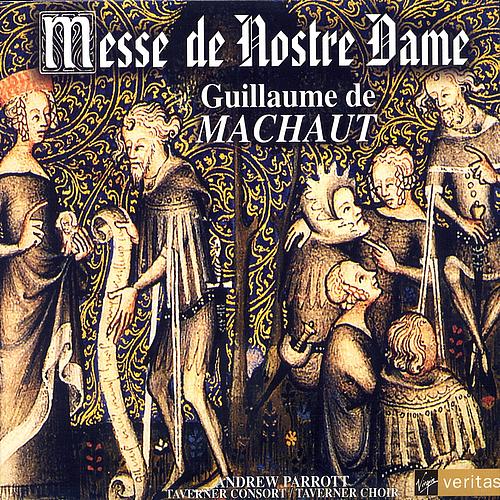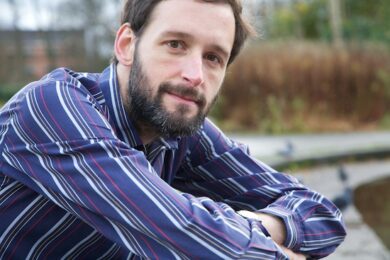3. Guillame De MachautMesse de Nostre Dame

I don’t really have a classical music background, so a lot of my knowledge about that has been self-educated. I’ve listened to Radio 3 a lot, trying to fill in the gaps in my knowledge. Guillaume de Machaut was a 14th century French composer, and that piece really struck me because it’s got some really interesting technical and polyphonic aspects to it. The polyphony is really strange, the harmonies are really odd and dissonant, and they seem really far ahead of their time. It goes back to an attraction to spiritual music. I’m not Christian, I don’t espouse any particular faith, but I’ve got this attraction to exploring it a certain way and I’ve got an interest in the music that’s been born of that kind of thing. That’s one aspect of my attraction to Machaut’s music, and to similar kinds of composers like Palestrina and Thomas Tallis. People who were composing this sacred polyphony. I like listening to big groups of people singing together, and I enjoy being in a big group of people singing together. A few years ago Phil Minton, the free vocal improviser, was doing his Feral Choir where he gets seventy or eighty people to sing in a group – not necessarily trained singers but all kinds of people – so I took part in that. The joyous nature of group singing appeals to me. Obviously Phil Minton’s Feral Choir is nothing at all like the music of Machaut, whose music is very strictly and rigidly composed, whereas Phil Minton’s Feral Choir is really wild and really free. The togetherness of people singing together draws me to them both, the lack of ego and the democratic feel.


